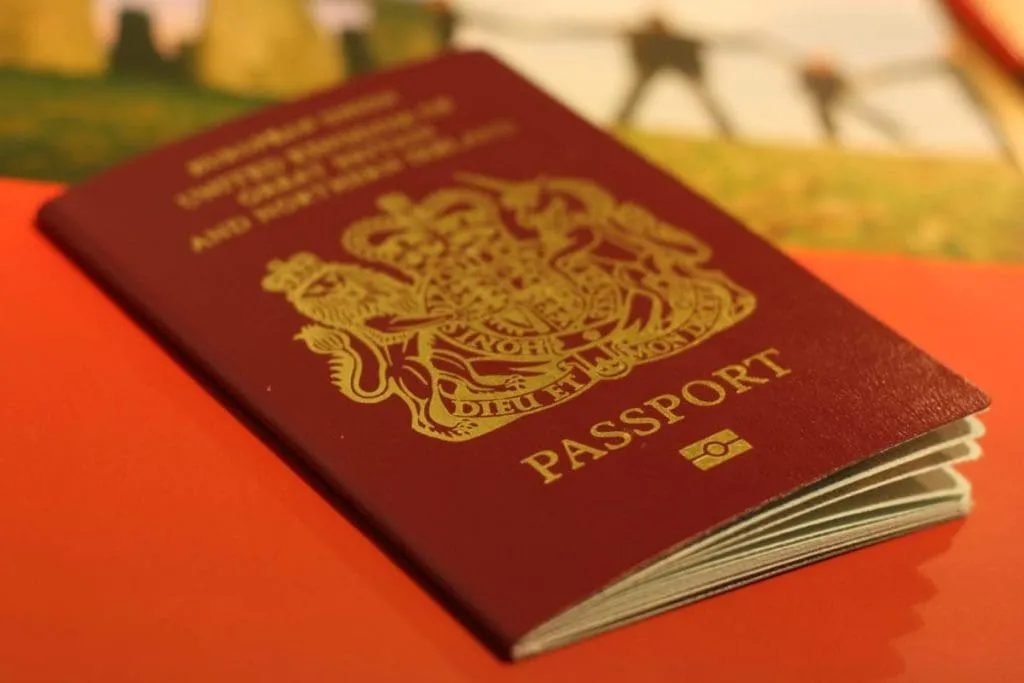Can British Citizenship Be Revoked?
Those who have acquired British citizenship can have this taken away by the Home Office by either nullity or deprivation if there is reason to do so.
If you feel you are at risk of revoking your British citizenship, get in touch with one of our IAA-accredited immigration lawyers who can provide legal advice, guidance and assistance.
Call IAS on +44 (0)333 414 9244 to find out more.
Read our 1001 reviews
Can you lose British citizenship?
Acquiring British citizenship is no small feat. This is the final step taken by those who wish to naturalise as a British citizen and it is by no means an easy process to get there. For many migrants in the UK, the journey to British citizenship can be a time-consuming, complex and expensive process.
There are a number of benefits to having British citizenship, such as being able to reside permanently in the UK without being subject to immigration controls, being eligible to work and study in the UK with no restrictions, being able to access public funds and receive free medical treatment, and being granted the right to vote in elections.
However, it is also possible to lose your citizenship if the Home Office deems this necessary. There can be a number of reasons for this, including if the Home Office believes that depriving your citizenship would be conducive to the public good, or if the Home Office realises that the applicant was not the intended person to be granted citizenship.

When can UK citizenship be revoked?
Your British citizenship may be revoked in specific circumstances. This is not a decision that will be taken lightly.
The Secretary of State for the Home Department may take away your citizenship either through nullity or deprivation.
Nullity occurs if the individual has been granted citizenship but was never the intended person. For example, if the applicant provided false information – such as providing the wrong name, place of birth, date of birth, and nationality – or if the applicant used someone else’s identity/an entirely false identity.
Deprivation of citizenship can take place under Section 40 of the British Nationality Act 1981 and occurs when the applicant has committed fraud, false representations or concealment of a material fact.
This can also occur if the Home Office deems it to be conducive to public good.
What counts as conducive to public good?
Essentially, when considering whether removing someone’s citizenship would be ‘conducive to the public good’, what this means is considering whether the person poses a threat to UK society.
It would be in the public’s interest to remove a person’s citizenship if they are involved with terrorism, espionage, have committed war crimes, are involved in serious organised crime or unacceptable behaviours.
Deprivation of British citizenship used to be primarily reserved for national security cases. However, in recent years, the government has used this to impose further punishments and restrictions on serious criminals.
In 2017, 104 British nationals were stripped of their citizenship. It is important to note, however, that those who lose their citizenship under the deprivation route have the right of appeal under nationality law and that the Home Office cannot deprive someone under the ‘Conducive to Public Good’ clause if this means the individual will be made stateless.
Can a British citizen be deported?
If the Home Secretary has taken away your citizenship through either nullity or deprivation, you may be deported.
However, if you are a British citizen, you cannot be deported. You must first be stripped of your British nationality.
There have been circumstances where UK residents and citizens have wrongly been detained and/or deported, such as the Windrush scandal which saw numerous Commonwealth citizens’ children targeted by the government in 2018.
Despite living and working in the UK for decades, many were informed that they were in the UK illegally because they did not have official paperwork. This sparked significant controversy as many had been granted Indefinite Leave to Remain by the government but had not been provided with the paperwork to prove this.
If you think you are at risk of deportation and would like professional legal advice and guidance, contact our dedicated immigration lawyers on 0330 433 1213.
Can you lose your British citizenship if you move to another country?
Your citizenship will not be impacted if you move or retire abroad. This means that you will not lose your British citizenship if you move to another country.
You may, however, wish to acquire dual citizenship if you seek to permanently reside in another country and would like to become a citizen of that country.
Dual citizenship is allowed in the UK, however you must check that wherever you wish to acquire citizenship allows you to retain citizenship of your native country (the UK). Otherwise, you may lose your British citizenship when applying for nationality of another country.
If you have no intention of applying for citizenship in a foreign country, you can live there for as long as you are permitted to and this will have no bearing on your citizenship. You will remain a British citizen while living outside the UK.
Can people born in the UK lose their British citizenship?
Absolutely, it is not only those who are born outside of the UK who are susceptible to having their British citizenship revoked if necessary.
However, the power to deprive British nationals of their citizenship can only be used against citizens who can become nationals of another country. People cannot be rendered stateless.
British citizens also have the choice to renounce their British citizenship if they wish. This may be the case if you wish to become a citizen of a country which does not allow for dual citizenship.
In this case, you can apply to renounce your British nationality in order to then become a citizen of the country you now permanently reside in (if you are eligible of course).
If accepted, you will receive a declaration of renunciation.
If you need support, you can get in touch with our London, Manchester, or Birmingham immigration lawyers, or alternatively, use the office finder to find the closest branch to you.

Table of Contents
Table of Contents will appear here.Table of Contents
Table of Contents will appear here.Legal Disclaimer
The information provided is for general informational purposes only and does not constitute legal advice. While we make every effort to ensure accuracy, the law may change, and the information may not reflect the most current legal developments. No warranty is given regarding the accuracy or completeness of the information, and we do not accept liability in such cases. We recommend consulting with a qualified lawyer at Immigration Advice Service before making any decisions based on the content provided.















